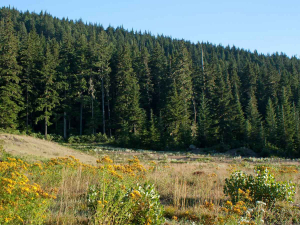ETS costs cut 66% for forest owners – McClay
Additional reductions to costs for forest owners in the Emissions Trading Scheme Registry (ETS) have been announced by the Government.
 New Zealand Rural Land Company has completed the purchase of forestry land in the Manawatu-Whanganui region.
New Zealand Rural Land Company has completed the purchase of forestry land in the Manawatu-Whanganui region.
New Zealand Rural Land Company (NZL) has completed the acquisition of a forestry estate located in the Manawatu-Whanganui region.
The estate comprises five individual properties with a total area of approximately 2,400ha, and was purchased at an acquisition cost of approximately $63 million.
The entire estate has been leased to New Zealand Forestry Leasing (NZFL) for a period of 20 years, with the first year’s payment being approximately $5m.
Co-founder and New Zealand Rural Land Management director Richard Milsom says the purchase was funded using a combination of debt and equity.
Debt was provided through an increase in borrowings from Rabobank of $25.2m.
“The equity component has been funded from the proceeds of NZL’s recent capital raise offer and from the proceeds of a $12m convertible note issued to an entity associated with NZFL.
“This forestry estate acquisition means NZL now owns 141,101ha of rural land with a 12.1 year weighted average lease term (by value), and 100% occupancy across eight tenants. It adds materially to the scale and diversity of NZL’s asset and tenant base,” says Milsom.
Rabobank regional head of sustainable finance for Australia & New Zealand Jurre Smits says the Rabobank green loan was provided to support NZL’s forestry acquisition and established a Green Financing Framework that will set out the eligible asset classes and how the proceeds from the loan will be used, managed and reported on, in line with the Asia Pacific Loan Market Association’s Green Loan Principles.
“Rabobank is proud to have partnered with NZL on this transaction as it contributes to climate change mitigation by protection and conservation of forestland, and therefore preserves the CO2 sequestering capability of the land,” Smits says.
“In addition, the green loan also supports improved biodiversity of the assets,” he says.
Federated Farmers is celebrating following the Government's announcement that young farmers will be able to use their KiwiSaver funds to buy their first home or farm.
The Meat Industry Association of New Zealand (MIA) today announced that Chief Executive Officer Sirma Karapeeva has resigned from the role.
The winners of the 2026 Hawke’s Bay/Wairarapa Dairy Industry Awards were announced at the annual awards dinner held at Copthorne Solway Park in Masterton on Thursday evening.
Environment Southland is welcoming this week’s decision by the Environmental Protection Authority (EPA) to approve the release of Blaptea elguetai, a leaf‑feeding beetle that will help control the highly invasive Chilean flame creeper.
This March, the potato industry is proudly celebrating International Women’s Day on 8 March alongside the International Year of the Woman Farmer, recognising the vital role women play across every part of the sector — from paddocks and packhouses to research, leadership, and innovation.
Fruit trader Seeka posted a record profit and returns to shareholders in 2025.

OPINION: A mate of yours truly reckons rural Manawatu families are the latest to suffer under what he calls the…
OPINION: If old Winston Peters thinks building trade relations with new nations, such as India, isn't a necessary investment in…